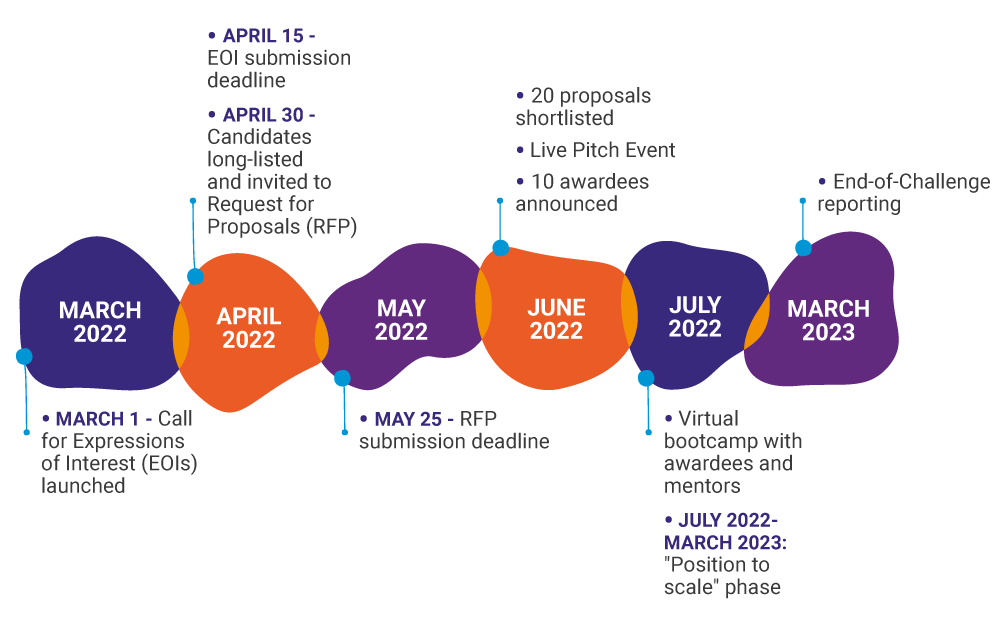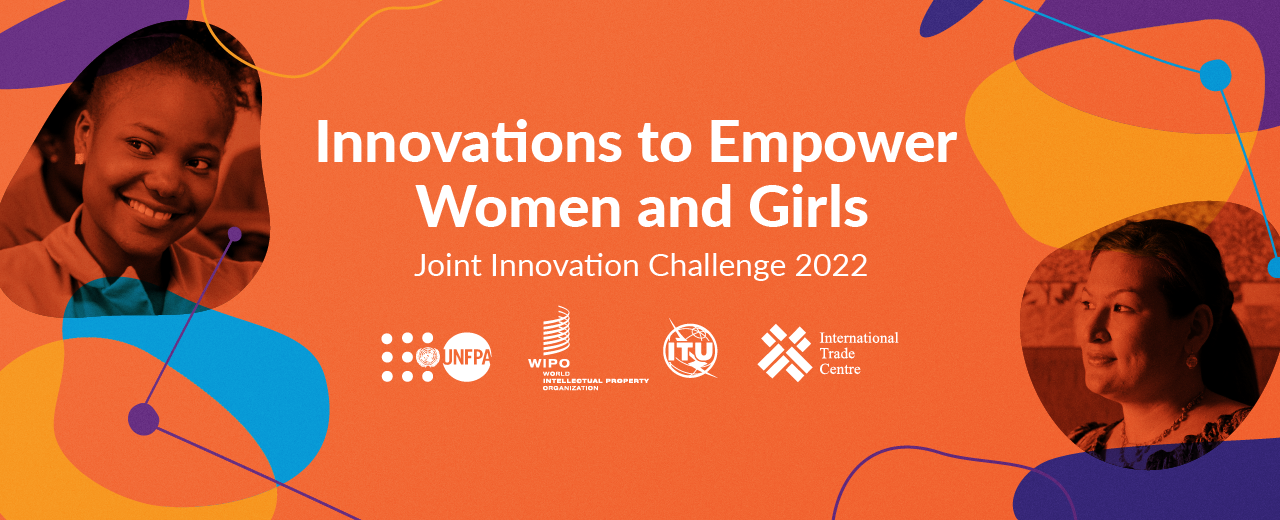Positioning to Scale: Innovations to Empower Women and Girls
Do you have an innovation to empower women and girls?
Background
The COVID-19 pandemic has reversed at least twenty years of progress for women and girls. The pandemic has overwhelmed health systems and supply chains across the globe and has derailed progress in sustainable development. In parallel, the pandemic has also catalyzed the acceleration of innovation, including in the booming health technology market.
In this context, the United Nations Population Fund (UNFPA), the World Intellectual Property Organization (WIPO), the International Telecommunication Union (ITU) and the International Trade Centre (ITC) are launching the Innovations to Empower Women and Girls Challenge (the Challenge) to further develop and position to scale innovative solutions that can help disrupt inequalities and advance the empowerment of women and girls in all their diversity.
The Challenge will support women-centered innovations, including those that i) provide affordable and sustainable access to essential reproductive health commodities, services, and information, with a focus on hard-to-reach areas and humanitarian settings, and ii) scale up prevention and response to gender-based violence and harmful practices.
The Innovation Challenge
UNFPA, in partnership with WIPO, ITU, and ITC will implement this joint Challenge. The partners will select up to 10 winning proposals from the applying Companies, and provide grants of up to $60,000 per award to position to scale. After the selection of awardees, winning Companies will sign a 9-month contract during which the awardees will fully develop and start implementing their plans to transition to scale, and will receive technical assistance in the focus areas, including intellectual property (IP) management and business modeling. WIPO will provide IP management support tailored to each of the awardees. This will include lectures, mentorship, and interactive workshops, and will be based on WIPO’s IP diagnostic and IP analytic tools. ITU will provide the bootcamp for winners, support mentorship, and support scale-up using its ecosystem development, initiatives sustainability, and scale-up frameworks. ITC will support the winners with training on business competitiveness, capacity building on gender mainstreaming within business practices, and capacity building on design thinking as a tool to develop innovative and client-centered solutions.
The application deadline has been extended to April 15 2022.




